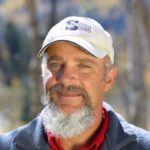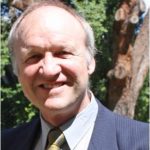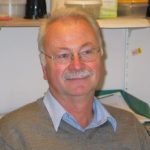IWTO Channel: Published September 13, 2017
Wool is a fiber with endless possibilities. In this video you’ll discover how wool is grown and how wool products are made. You’ll learn about wool’s many natural properties such as flame resistance and breathability, and why wool is the top choice for mountain rescue teams.
You’ll also learn how wool growers and companies respect and care for the environment, producing wool sustainably and with respect for the welfare of wool sheep.
Natural, renewable and biodegradable, wool enhances our lives in so many ways. Fashion, sports and outdoor wear, bedding, carpets, medical textiles and more all benefit from the many natural benefits of wool.
This video was produced by the International Wool Textile Organisation with the support of Armadillo Merino, Woopies, Australian Wool Innovation and The Campaign for Wool.
For more information on wool, sheep, and the wool textile industry, visit www.iwto.org
https://www.youtube.com/watch?v=qAF67yNSn24&feature=youtu.be&a=
Laurence Gatt is a student at Whitehouse Design in Melbourne.
Laurence has provided a preview of his 2017 collection, using fabrics funded by AWET’s grant. AWET has also received story boards of grant recipients from other institutions.
Animal Production 2018 program is all about communicating leading science in improving the productivity and profitability of Australia’s livestock industries.
A key component of the conference program are four prestigous Memorial Lecture presentations. These are invite-only by the conference organising committee based on the recipient’s expertise and contribution to animal science.
We’re pleased to announce the Animal Production 2018 Memorial Lecture recipients …
Dr Fred Provenza
Utah State University, USA
McCLYMONT MEMORIAL LECTURE
Topic: How Palates Link Soil and Plants with Herbivores and Humans
Dr Fred Provenza is Professor Emeritus of Behavioral Ecology in the Department of Wildland Resources at Utah State University. He is a pioneer in understanding foraging behaviour and how behaviour links soils and plants with herbivores and humans. For 40 years, the research undertaken by Fred’s team laid the foundation for behaviour-based management of livestock and wildlife. That work has been an inspiration to researchers in diverse disciplines, including animal behaviour and welfare, wildlife damage science and management, veterinary science, ruminant and human nutrition, chemical ecology, plant ecology and horticulture, landscape restoration ecology, and pasture and rangeland science and management.
These efforts led to the formation in 2001 of an international network of scientists and land managers from five continents, called BEHAVE – Behavioural Education for Human, Animal, Vegetation and Ecosystem Management. They seek to inspire and enable people to understand and use knowledge of behaviour to create relationships that reconcile differences of opinion about how to manage landscapes. With colleagues, he has authored over 250 publications in scientific journals and books and invited to speak at more than 400 conferences. Dr Provenza will bring his perspective on the importance of a diverse diet to animals, and consequently how this impacts on human well-being and the demand for animal-based foodstuffs.
Dr Joao Vendramini
University of Florida, USA
HARRY STOBBS MEMORIAL LECTURE
Topic: Concentrate Supplementation of Grazing Beef Calves: Performance and Metabolic Imprinting
Dr Joao Vendramini, Brazil, received his bachelor degree in agronomy from the University of Sao Paulo, master degree in Animal Sciences from the same institution, and PhD in Forage management in the Department of Agronomy at the University of Florida in 2005. He was assistant professor – Forage Specialist at Texas A&M University from August 2005 to August 2006 before taking his current research and extension appointments in the UF/IFAS Range Cattle Research and Education Center, Florida. Dr Vendramini’s program is dedicated to forage management with emphasis on sub-tropical production systems.
The major area of interest is forage-livestock interface and the impact of forage management on forage and animal production. Dr Vendramini’s research program has generated 3 book chapters; 101 refereed journal articles, 60 non-refereed technical articles, and 100+ abstracts in professional meetings. He has been the principal investigator or co-principal investigator on grants totaling $1.2 million and currently is the chair or co-chair on 3 graduate students committees and serving as a member of additional 3 committees. Dr Vendramini is a member of the American Society of Agronomy, Crop Science Society of America, America Forage and Grassland Council, American Society of Animal Sciences, American Registry of Animal Science Professionals, and Florida Cattlemen’s Association.
Dr David Masters
University of Western Australia, Aus
UNDERWOOD MEMORIAL LECTURE
Topic: Practical implications of mineral and vitamin imbalance in grazing sheep
Dr Masters has more than 30 years’ experience as a scientist and research leader with CSIRO, the University of Western Australia and in private industry. He has a research background in livestock systems, mineral, amino acid and protein nutrition, wool production and livestock-environment interactions. He began his career studying the requirements and utilisation of zinc during pregnancy before working more generally with cobalt, selenium and copper in grazing sheep and later in the development and effectiveness of mineral supplements for ruminants. As a leader of the Livestock Systems program within the Salinity CRC, Dr Masters initiated research into the utilisation of halophytic plants, high in sodium, potassium and chlorides for production.
This research provided the basis for rehabilitation of saline landscapes for productive agriculture in Australia and overseas. More recently he has provided scientific leadership for a national research program investigating the imbalanced intake of sodium, magnesium, potassium and calcium in pregnant sheep grazing young, vegetative crops. Dr Masters was elected as a Fellow of the Australian Society of Animal Production in 2006 and is an Adjunct Professor at the University of Western Australia and an Honorary Fellow with CSIRO Agriculture.
Prof Paul Hemsworth
University of Melbourne, Aus
BARNETT MEMORIAL LECTURE
Topic: Key determinants of animal welfare: animal management and housing design
Prof Hemsworth is a professor at the University of Melbourne and a member of the Animal Welfare Science Centre, a joint centre of the University of Melbourne, University of Adelaide, Department of Economic Development, Jobs, Transport and Resources (Victoria), South Australian Research and Development Institute and Ohio State University. Prof Hemsworth is an agricultural graduate with a PhD in animal behaviour and physiology.
He is most recognised internationally for his research on the role of human-animal interactions on farm and companion animal welfare. Prof Hemsworth, in collaboration with numerous colleagues has studied the influence of a wide range of housing and husbandry practices on common behavioural problems and welfare risks in farm animals. Over his research career, he has published more than 200 refereed journal papers on animal behaviour and welfare. He teaches undergraduate and postgraduate subjects on animal behaviour and animal welfare at the University of Melbourne.
Curtin Students, Emma Watson and Sophie Watson, display their collections in Beijing.
AWET provides 25 grants each year to final year fashion students to assist them to utilise wool fabrics in their final year collections. Two of these students, Emma Watson and Sophie Watson (not related), both from Curtin University in Western Australia, were invited to show their designs in a parade in Beijing.
Emma Watson
Sophie Watson
NOW OPEN
The Australian Society of Animal Production, together with CSIRO Publishing, will prepare a special edition of Animal Production Science to be distributed at the Animal Production 2018 conference, 2-4 July 2018, in Wagga Wagga, NSW.
The first call is now open for authors to submit 300 word abstracts. These will be reviewed by the conference editorial committee and invitations will then be offered for a limited number of authors to prepare a full six page paper.
The Animal Production 2018 editorial committee will be assessing full papers and one page papers for relevance to the conference theme – Fostering innovation through the value chain – soundness and quality.
Research papers in Animal Production Science focus on improving livestock and food production, and on the social and economic issues that influence primary producers. The journal is predominantly focused on beef cattle, dairy cows, sheep, pigs, goats and poultry as well as emerging animal industries.
The full papers will follow CSIRO submission requirements with submissions made through the CSIRO’s ScholarOne Manuscripts portal.
Authors of abstracts who are not invited to submit full papers will have the option to submit one page papers through the second call for submissions.
The deadline for the first call for abstracts is 5pm (ACST), 8 September 2017.
Details: For further information on the conference and the call for abstracts visit the conference website.
Find out how to submit your abstract.
Founder of the Hub and Spoke model retires.
Professor Cottle was an Associate Professor of Wool Science in the Department of Wool and Pastoral Science at the University of NSW in the 1990s. When the school was closed David worked five years as a member of the senior management team at the Wool Research Organisation of New Zealand.
In 2002 he was appointed Professor of Sheep and Wool Science at the University of New England, to manage the education program for the Australian Sheep Industry Cooperative Research Centre (Sheep CRC). The new Chair at UNE was jointly sponsored by the CRC itself, UNE, and the Australian Wool Wool Education Trust.
The education program developed by the CRC under Professor Cottle’s leadership was part of the CRC’s strategy to revitalise education and training for Australia’s sheep industry. A key element of the strategy was the delivery of a range of courses that accepted external enrolments from other universities, with UNE acting as the “Hub” and the other universities as the “Spokes”, thereby maximising the enrolments.
Professor Cottle gained his Doctorate at UNE. During his career he was the editor of The Australian Sheep and Wool Handbook and the Journal of Wool Technology and Sheep Breeding, two of his lasting legacies to the sheep and wool industry.
We wish him well in his retirement.
Fostering innovation through the value chain
The 32nd Biennial Conference of the Australian Society of Animal Production, Animal Production 2018, will take place from July 2-4 at Charles Sturt University in Wagga Wagga, New South Wales.
The 2018 Organising Committee have commenced planning a dynamic program that will bring scientists, educators, social scientists, extension experts, consultants, consumer advocates, processors and producers together to share the latest information on all aspects of animal production.The conference tagline, fostering innovation through the value chain, will deliver a cross-species focused program sourcing international and national speakers on topics such as:
– Opportunities for innovation in animal production – a cross-species view
– Understanding the consumer: social, economic and animal welfare in animal production industries
– Mixed farming and grazing systems: integration, management, innovation
– The value of big data and its potential as a resource
Conference submissions are now being called for. The paper submission timeline has been released.
Improved access to CRC for Premium Quality Wool Resources.
- Wool Biology
- Wool Metrology
- Wool Marketing
- Wool Production
- Wool Technology
These are still available. However, it is now possible to drill down to the topic level within each theme for each subject and download all the modules for a topic as a compressed archive.
Go to CRC for Premium Quality Wool Resources
AWET grant recipient wins a prestigious prize.
Hannah Tan, a student at UTS and one of the recipients of the 2016 AWET fashion student grant, won the Australian Fashion Fund Scholarship/Internship Prize for 2016/2017, with the collection facilitated by the Trust’s grant.
Winners of the Prize receive a USD$20,000 grant and a 6-month internship with a global fashion powerhouse in New York City or Europe, and most likely Hannah will intern at Calvin Klein.
The Australian Wool Education Trust Grant 2016, alongside ongoing support from The Woolmark Company, has been invaluable throughout my Honours experience. It was not only the financial aid that assisted in building the collection, but also the wealth of knowledge and advice from members of the company. It has truly been a great honour to have received the grant, creating visibility and success for my work.
View Hannah’s Collection here.
Woolwise.com was originally developed as a resource for educators, researchers, consultants, students and other stakeholders in the wool industry.
The range of devices used to visit websites has increased. Most people use PC’s, tablets and phones for this purpose. However, for this to work successfully a website must be “responsive”. This means designing it so it can be satisfactorily rendered on all these devices. A major renovation of the site to make it responsive has been completed, and a fresh new look created, using the services of Woolwise’s web hosting provider, MindVision.
The new site has been tested on Apple and Android tablets and phones. It is recommended that for optimum performance you use the native browser for these devices, rather than a secondary browser such as Firefox.
The bulk of the Trust’s educational materials are not distributed via Woolwise. They are distributed via DVD. This is expensive and in any event this medium is becoming redundant as the capacity for web based distribution systems increases. Consequently, all of the Trust’s materials will be progressively migrated to the new Woolwise and made available via the internet.
Some of these materials are subject to licence agreements so the new site incorporates a registration and log-in system for licence holders. This is not available in the first release of the new site, but will be available once the licenced materials are uploaded to the site.
In the meantime explore and discover the new materials and features now available in this initial release. In particular these include:
- An enhanced display of News on the home page.
- The ability to browse past News items.
- The ability to categorise News Items.
- A section covering the Trust’s funding activities with Fashion Schools and the outcomes.
- Access to a more extensive range of AWTCC materials.
- Enhanced access to VET materials created by the second Sheep CRC.
- Links to AWI’s Learn About Wool site.
- A built in Contact system.
- Enhanced information about AWET.
- An always available direct link to AWET’s Facebook page.
The “Woolwise Origins” menu includes most of the information from the original Woolwise site, albeit reformatted. This has been retained to acknowledge the work by the first CRC and its team, in establishing the site and some of the materials created by the CRC. The primary resources, the educational PPT files associated with each of the CRC’s programs, are available in the Educational Resources menu.
Additional features are planned for the site in the future.




